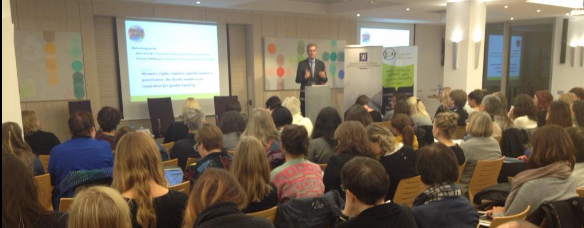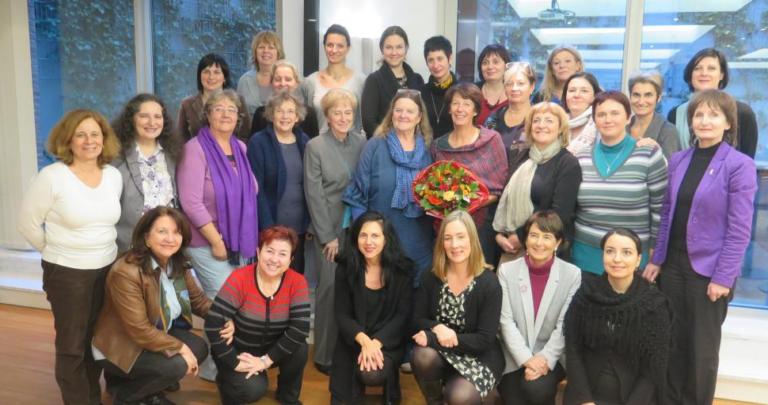[Glasgow, 29 October 2012] As a result of a lot of hard work on part of feminist campaigners, Scotland again gets a chance to discuss a proposed law to criminalise the purchase of sex. Analysis by Marsha Scott, UK expert to the EWL Observatory on violence against women.
A previous “members bill”—submitted by an individual member of the Scottish Parliament (MSP)—received overwhelming support in its consultation period, but the sponsoring MSP (Trish Godman) did not stand for re-election, and the bill was not continued when she left. Her baton has been picked up by Rhoda Grant, MSP, who has launched a new consultation on a similar bill; the new bill is called “Criminalisation of the Purchase of Sex (Scotland) Bill (2): A proposal for a Bill to make it an offence to purchase sex.” According to Ms. Grant, “This consultation seeks your views on a proposal to tackle the demand side of sexual exploitation. Following Trish Godman’s consultation of the purchase and sale of sex, and related activities, in Scotland I adopted the proposal to criminalise the purchase of sex. I strongly believe that no human being should be reduced down to a commodity, to be bought and sold.” Deadline for submitting contributions is 14 December.
This government (and the previous one) works from a gendered definition of violence against women (VAW) and identifies prostitution as a form of VAW. The VAW sector, led by The Women’s Support Project in Glasgow, has long worked to build awareness that prostitution is a survival activity driven by poverty, homelessness, the experience of violence and abuse and drug and alcohol addiction. The VAW sector in Scotland views prostitution as inextricably linked to other forms of commercial sexual exploitation such as human trafficking, pornography, lap-dancing, stripping, pole dancing and table dancing. All these activities are harmful for the individuals involved and have a negative impact on society as a whole.
We are hopeful that the bill will attract cross-party support, although of course the sex industry lobby is hard at work. The consultation ends in December, and we look forward to the vote in 2014. Watch this space!



